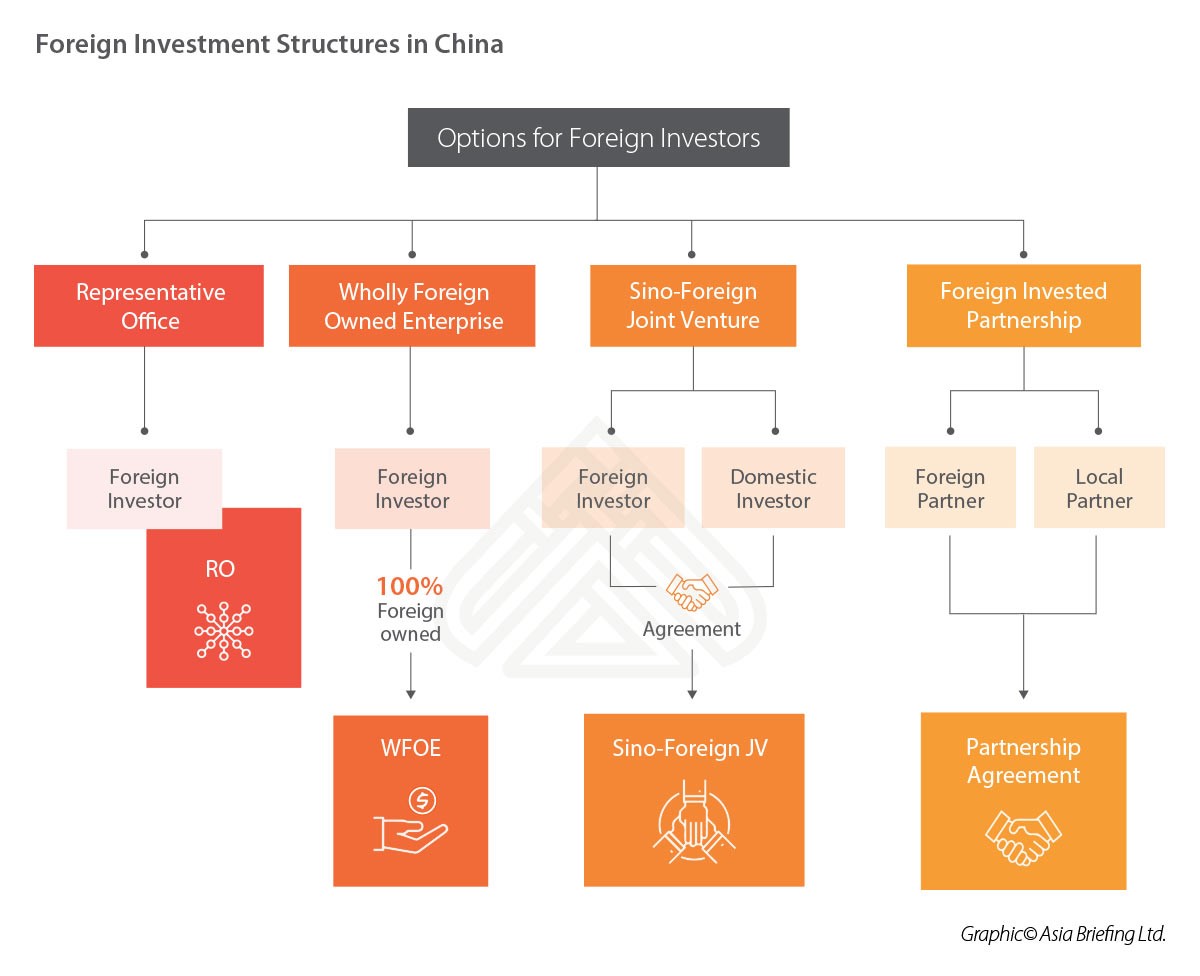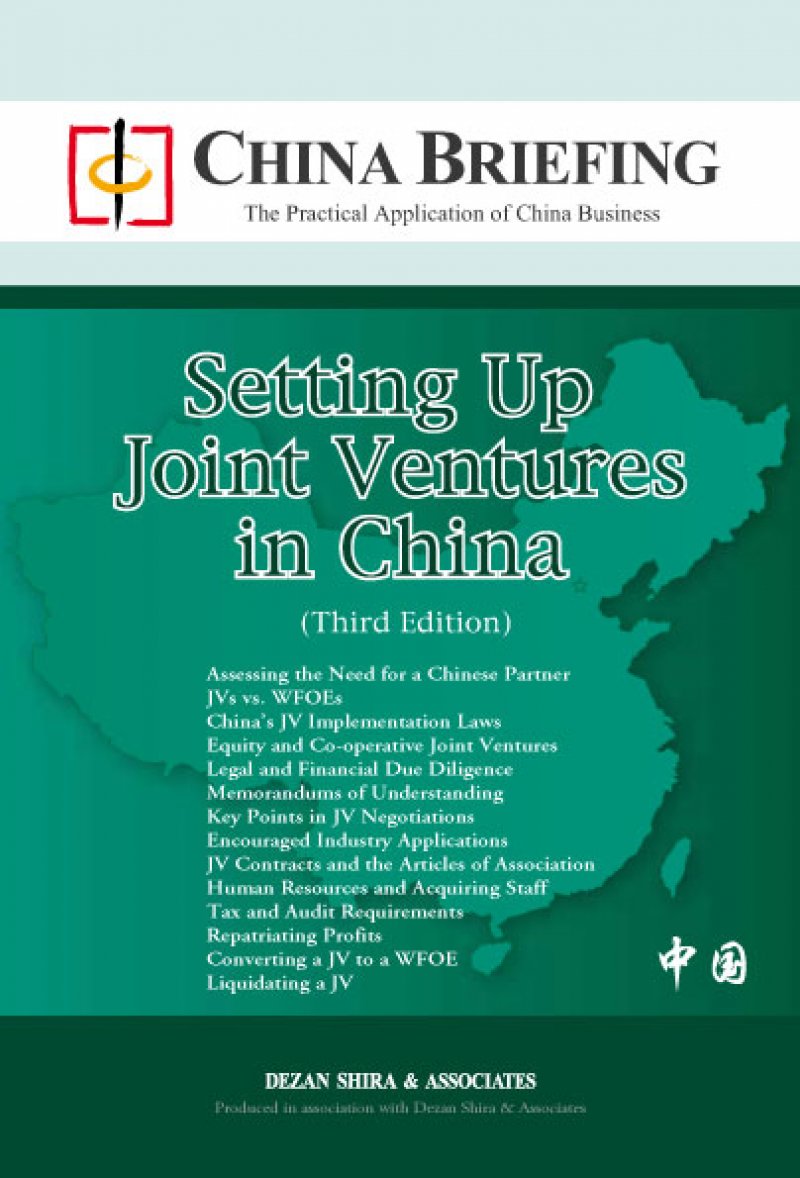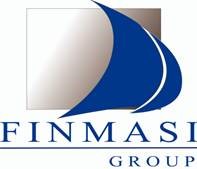
Our collection of resources based on what we have learned on the ground
How to Structure Your Investments in China – Corporate Establishment Quick Facts
ArticleForeign firms investing in China’s complex and diverse market may be faced with various legal, regulatory as well as cultural challenges when preparing for market entry.
If these challenges are not handled with caution and vigilance, a foreign enterprise’s expansion plans may come to an abrupt halt.
One of the first tasks is choosing the best-fit corporate structure for your business. This will mitigate unnecessary business constraints, costs, and prevent regulatory scrutiny.
What are the key considerations while choosing an office type?
Key consideration while planning your corporate establishment route are:
- What are the business objectives?
- What are the day-to-day operational requirements of the office?
- How much domestic input is required by the foreign company?
- How does the foreign enterprise want to manage their capital requirements, legal liability, tax, commercial and hiring capacity?
In addition, foreign investors should consider the time frame for each type of set up and the type of industry and target audience they are looking to explore in the Chinese market.
To avoid unnecessary expenditure or a failed attempt at market entry, investors should seek local counsel. It may also be necessary to seek guidance on how the local authorities in various regions in China view the industry the firm seeks to enter – this may prove to be an important decider for the ease of operations of the company.
What are the company registration options for foreign investors in China?

Representative Office
A Representative Office (RO) serves as an extension of a foreign enterprise, its sole function is to facilitate the activities of its foreign parent in China.
- Merely acts as a liaison office for the foreign parent company;
- The parent company is required to assume all legal and transactional liabilities and assets of the RO; and,
- No separate legal entity is formed when an RO is established.
This type of office is also limited in permissible commercial activities; including restrictions on profit generating activities and hiring of local staff - which may be done only through a qualified labor dispatch agency.
The extent of permissible commercial activity also differs from region to region in China.
Wholly Foreign Owned Enterprise
A Wholly Foreign Owned Enterprise (WFOE) is an enterprise owned by one or more foreign investors. Unlike an RO, a WFOE is a separate legal entity as per Chinese laws. This essentially means that it has its own rights and obligations, such as the capacity to own property and the ability to enter into legally binding contracts.
A WFOE may be set up as a limited liability company, with the liability of each investor limited to the total capital paid by them.
A WFOE is broadly set up for three purposes:
- Service (or Consulting) WFOE;
- Trading WFOE; or,
- Manufacturing WFOE.
All three of these entities will have the same legal rights and obligations. However, their setup procedures, costs, and range of commercial activities will differ.
Sino-Foreign Joint Venture
Sino-Foreign Joint Venture (JV) is a commercial enterprise between a foreign partner and a domestic Chinese party.
There are two types of Joint Ventures:
- Equity Joint Venture (EJV); and,
- Cooperative Joint Venture (CJV).
An EJV is a limited liability company where profits and losses are shared between JV members in proportion to their individual equity contributions.
Generally, a foreign investor in a JV should own at least 25 percent of total shares. Foreign investors should also note that Chinese individuals cannot usually be a JV partner.
The formation of a JV does not necessarily entail a merger of the two companies, instead an entirely new legal entity is formed. However, a Cooperative Joint Venture (CJV) may function as an exception to this.
A CJV can operate as a limited liability company or as a non-legal entity. Further, profit and loss distribution may be negotiated within the contract agreement. Thus, a CJV investment structure provides more flexibility than the EJV to the partners.
Foreign companies that want to invest in industry sector restricted by the Chinese government develop JVs with a Chinese partner to meet investment requirements. Otherwise, foreign companies form JVs when they want to make use local market information, distribution networks, or business goodwill of a Chinese partner.
Foreign Invested Partnership
Like JV’s, a Foreign Invested Partnership consists of two or more investors entering into a contract for commercial purposes. The main difference between the two structures is –
- No requirement for minimum capital in a FIP
- May function as an unlimited liability company
Thus, a FIP investment structure provides more flexibility than a JV structure.
The Partnership Enterprise Law regulates the establishment and operation of all partnership agreements. While a FIP must be established according to this law, operational discretion lies with the partners. This means that in case of a conflict between the law and the partnership agreement of the , the terms of the agreement shall prevail.
This provides partners to a partnership agreement a high level of autonomy on how they wish to operate. However, with the flexibility, more liability also needs to be assumed by the partners – making this model a less common structure for foreign investors in China.
For more information on the latest economic, legal, tax and HR updates, visit our China Briefing website.
To know more about your investment options in China, contact us.
< BACK TO LIBRARY
Subscribe to receive latest insights directly to your inbox
Subscribe NowOur Clients
Discover our esteemed global clients across diverse sectors. We believe in providing our clients with exceptional service and a commitment to being their partner for growth in Asia.
See what our clients say about us
































